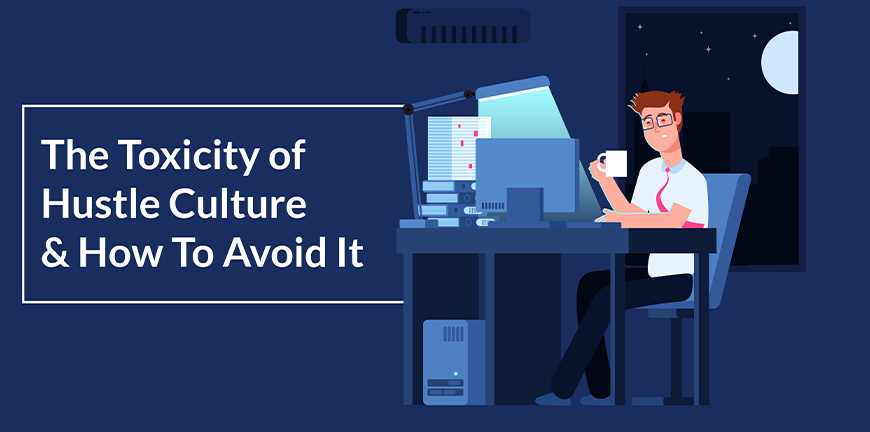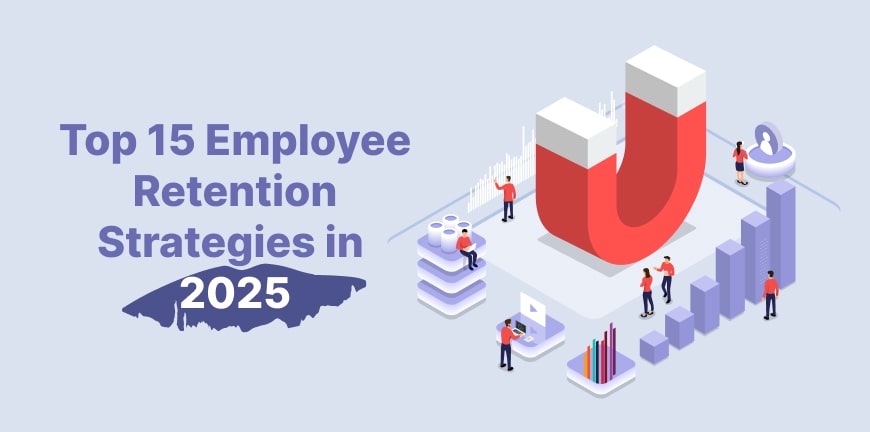
What is Human Resource Management (HRM)? An Expert Guide 2026
06/04/2023
Manpower Planning for India’s Green Energy Sector
09/06/2023A recent note by Hardik Pandya, SVP of Design of Unacademy, went viral on Twitter. In his note, he says, “Those who say you shouldn’t work weekends have probably never tasted what amazing work looks like. And how your willingness to devote yourself to your work can consume you to a point where you don’t care about what day of the week it is.”
He also adds, “I absolutely want to see more people glorify working hard. Because it’s hard to work hard, and It’s hard to give a shit and commit. Clocking your hours every day just ain’t it.”
A similar sentiment was shared by Shantanu Deshpande, CEO of Bombay Shaving Company, on Linkedin last year when he said youngsters should not do “random rona dhona” and put in 18-hour workdays.
While hard work is an important work ethic that everyone should follow, the unrealistic and unsustainable expectation that people should give up their health, family and life for work to run after the mirage of “success”, fame and money is what is wrong and toxic about the idea of hustle culture, as it is popularly known these days.
Ask Arianna Huffington, the founder of the Huffington Post and one of the most influential women in the media industry globally. Her work obsession and love for constant hustle led to her dramatic collapse in her own blood resulting in weeks of hospitalization and months of rehab. This wake-up call was enough to convert her from a sleep-deprived workaholic to a sleep and health evangelist.
The trappings of hustle culture have kept us all under its grip for too long, but you cannot deny the toxicity it holds, and it is high time we stop glorifying it. While “the grind should never stop” sounds cool, it is far from reality. Fuelled by social media, the pressure to be more, do more, and hustle more has affected our mental and physical health in more ways than one.
Many have embraced hustle culture, believing sustained hard work can turn every dream into reality. However, several studies have shown that overwork can lead to early-age burnout, severely damaging mental health.
So, the million-dollar question is – yes, embracing hustle culture and being a workaholic can lead you to the so-called success and money. But at what cost?
Let us first understand the idea that revolves around hustle culture and how it has evolved over the past decades.
What is Hustle Culture?
Hustle culture, also known as burnout culture, centres around working long hours and sacrificing personal life to get ahead. The societal standard is that you must exert yourself to 100% capacity to succeed.
This concept is quite favourable among entrepreneurs who constantly seek ideas from motivational speakers to hustle harder because who needs a life when you’re trying to build an empire? Right?
As much as we love the enthusiasm from many of these advocates for hustle culture, it isn’t as wonderful or pretty as it sounds. Because let us admit it, no one can work without taking breaks. At some point, you need to disconnect from work and allow your brain to relax, and that’s not a sign of laziness- it’s biology. If not, an “always on” lifestyle will eventually lead to burnout.
History and Evolution of the Hustle Culture
The word hustle comes from the Dutch word Husselen, which means “to shake or toss”. As it became part of the English lexicon, it soon took on extended meanings like “to crowd or push roughly. But it wasn’t until the late 19th and early 20th century that hustle started to be associated with hard work. A report published by NPR mentioned “A 1914 job ad from The Chicago Defender, an African American newspaper, said delivering the paper was an ‘easy task’ for ‘any wide-awake boy with slight hustle in him.
Hustle culture gained traction in the 1970s, at which time the development of the industry was accelerating, and employees were required to work at a fast pace without any time limits.
The last tech revolution and the tech community are where the roots of hustle culture lay, during which this way of life was actively promoted, based on an almost masochistic work ethic.
In 1990, technology companies began to dominate the world, so a new standard emerged for young people to overwork.
During that time, many successful entrepreneurs exposed their hundreds of thousands of followers to an unrelenting kind of communication, celebrating overworking, making it look like a sort of liberation, giving rise to the popular hashtag #thankgoditsmonday- Sounds familiar?
One of the patrons of the TGIM movement is the founder of SpaceX and Tesla, Elon Musk (28 million followers on Twitter), who tweeted aphorisms like “No one ever changed the world on 40 hours a week”, and recommended reaching an 80 hours/week threshold, possibly “peaking at 100.”
Former Yahoo CEO Marissa Mayer, 2016, confessed to Bloomberg that she worked 130 hours a week, which means 18.5 hours a day, Sundays included. The figures were barely believable, but no one questioned it nor contested it even from an economic point of view: economically speaking, procedures work well until someone consumes what someone else has produced. A society of non-stop producers would not have lasted a day.
Why is Hustle Culture Glorified?
Hustle culture glorifies the mentality that one must always be ‘hustling’ or working hard, chasing their goals. Hashtags such as #NoDaysOff, #EveryDayImHustling and #TheHustleIsReal are ways social media is pushing hustle culture. It has created the mindset that success is only possible if you constantly sacrifice other aspects of your life for your career. We all see on social media the people that tout the “hustle.”, “Rise and grind,”. The intention behind these cliches is to inspire people around them to take action (or secretly to brag that they were people motivated to fulfil their accomplishments).
On the contrary, the hustle culture has led towards toxic productivity, where one must constantly be productive to succeed. Toxic productivity is the idea that you will get ahead quicker if you work harder than everyone else, but this is not always true and can negatively affect your well-being in the long run.
Why is Hustle Culture Toxic?
By forcing workers to be in a ‘go hard or go home’ mindset, hustle culture puts the body in a state of fight or flight. Hustle culture does not allow time for rest, and burnout is inevitable. This continuous stress can be harmful to both your mental and physical well-being. This constant stress releases the stress hormone—cortisol—in higher amounts and for more prolonged periods. Prolonged elevated cortisol levels are associated with various detrimental effects, including anxiety, depression, heart disease, memory impairments, and more.
Research has shown that increased stress levels lead to reduced professional productivity, and to deliver quality work, employees must achieve personal satisfaction and conscientiousness rather than merely increasing their workload. Data has indicated that there exists a positive association between well-being and productivity. If people are calm and less stressed (i.e., through taking social breaks), they experience improved productivity. So, by putting workers in a constant state of stress, hustle culture is paradoxically impairing productivity.
How Does Hustle Culture Affect Your Physical and Mental Health?
Long-working hours elevate the risk of poor mental health, such as depressive symptoms, worsened emotional well-being, anxiety, and suicidal thoughts leading to work disability and reduced quality of life.
Long working hours can cause increased blood pressure and heart rate due to psychological over-activation and stress. It also contributes to insulin resistance, arrhythmia, hyper-coagulation, and ischemia among individuals already at risk of having a high atherosclerotic burden and compromised glucose metabolism (diabetes). The risk of Atrial Fibrillation also increases with working 55 hours or more per week.
According to a study by Deloitte, 77% of people have experienced burnout at their jobs, and 42% have left their jobs because they felt burned out. As a result, mental and emotional stress from working long hours and trying to keep up with unrealistic expectations set by the toxic excesses of hustle culture.
How to Discourage Hustle Culture in the Workplace?
There’s no proof that longer work shifts or working more days and hours each week will help employees be more productive. Instead, encourage employees to take a more moderate approach to work hours and effort.
Some of the step’s organizations can take to achieve this feat are-
-
Prioritizing work-life balance
Loosen up your attendance and vacation policies. Yes, this will cost the company money, but you’ll be making massive gains in productivity and employee engagement. Provide flexible work arrangements, promote a healthy work-life culture, encourage time off and vacations and reduce the amount of time employees spend on work outside of work hours
-
Creating a positive company culture
You must build a positive company culture to reduce the risk of burnout and foster employee wellness. A positive company culture can be designed and maintained through intentional efforts and initiatives by the company’s leadership. It creates a supportive and inclusive environment that values and prioritizes employee well-being.
-
Having an open communication policy
Encouraging open communication and feedback between employees and management creates a sense of transparency and accountability for employees allowing them to shape the workplace culture and promote healthy work life.
-
Positive reinforcement
Show a little positive acknowledgement to employees who exhibit a more balanced behaviour. Notice when employees reject the hustle and favour a more balanced sense of work and life. Better yet, reward them for that behaviour with praise and positive feedback.
-
Encouraging self-care
Encourage employees to take breaks, engage in physical activity, and practice self-care activities such as meditation, yoga, or spending time with loved ones.
Final comments
The issue of Hustle Culture and employee burnout is critical and requires attention and action from organizations. To address the issue of employee burnout and avoid Hustle Culture, organizations must take a proactive approach to create a healthy and sustainable work environment.
We know that complete work-life balance is a myth. It simply does not exist. Instead, create an environment where your company culture can naturally evolve and support all the employees. The return on that investment will be worth the effort.
Contact Us For Business Enquiry

Rajkumar Shanmugam
Rajkumar Shanmugam is the Head of HR at ALP Consulting, bringing over 19 years of comprehensive HR leadership experience across India and international markets. His expertise spans talent acquisition, employee relations, performance management, compliance, and HR transformation. Rajkumar has a proven track record of driving people-centric initiatives, enhancing workplace culture, and aligning HR strategy with business goals. With extensive experience in US staffing operations and global mobility, he continues to lead organizational excellence through innovation and employee engagement.




